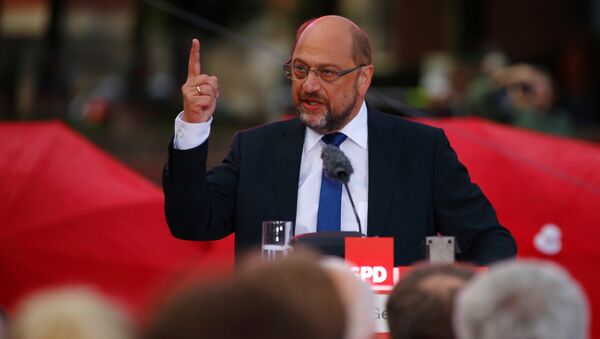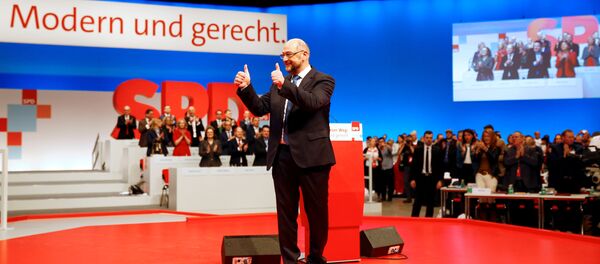On Thursday, German Social Democratic Party (SPD) members voted overwhelmingly to allow their party's leadership to enter talks with Chancellor Angela Merkel's conservatives (CDU/CSU, the alliance of the Christian Democratic Union of Germany and Christian Social Union) on forming a government.
According to Bild newspaper, 600 delegates woted in favor of the move.
"Significant majority is in favor," an SPD representative said.
On November, 20 the German Free Democratic Party (FDP) announced its withdrawal from the coalition talks with the union of the CDU/CSU and the Greens (prospective 'Jamaica coalition'). The FDP withdrew from Jamaica coalition negotiations with the CDU/CSU alliance and the Greens, with the remaining parties only capable of forming a minority government. Last week, SPD and CDU/CSU agreed to enter coalition talks, although the SPD had initially refused to form the so-called Grand Coalition.
READ MORE: Germany's SPD Leader Schulz Calls for 'United States of Europe' by 2025
Germany held a parliamentary election on September 24. German Chancellor Angela Merkel's ruling CDU/CSU alliance won the election with 33 percent of votes and secured 246 seats in the parliament, however failed to secure an absolute majority. The SPD came second with 20.5 percent of the vote and 153 seats. The Free Democratic Party (FDP) received 10.7 percent of the vote and 80 seats.





